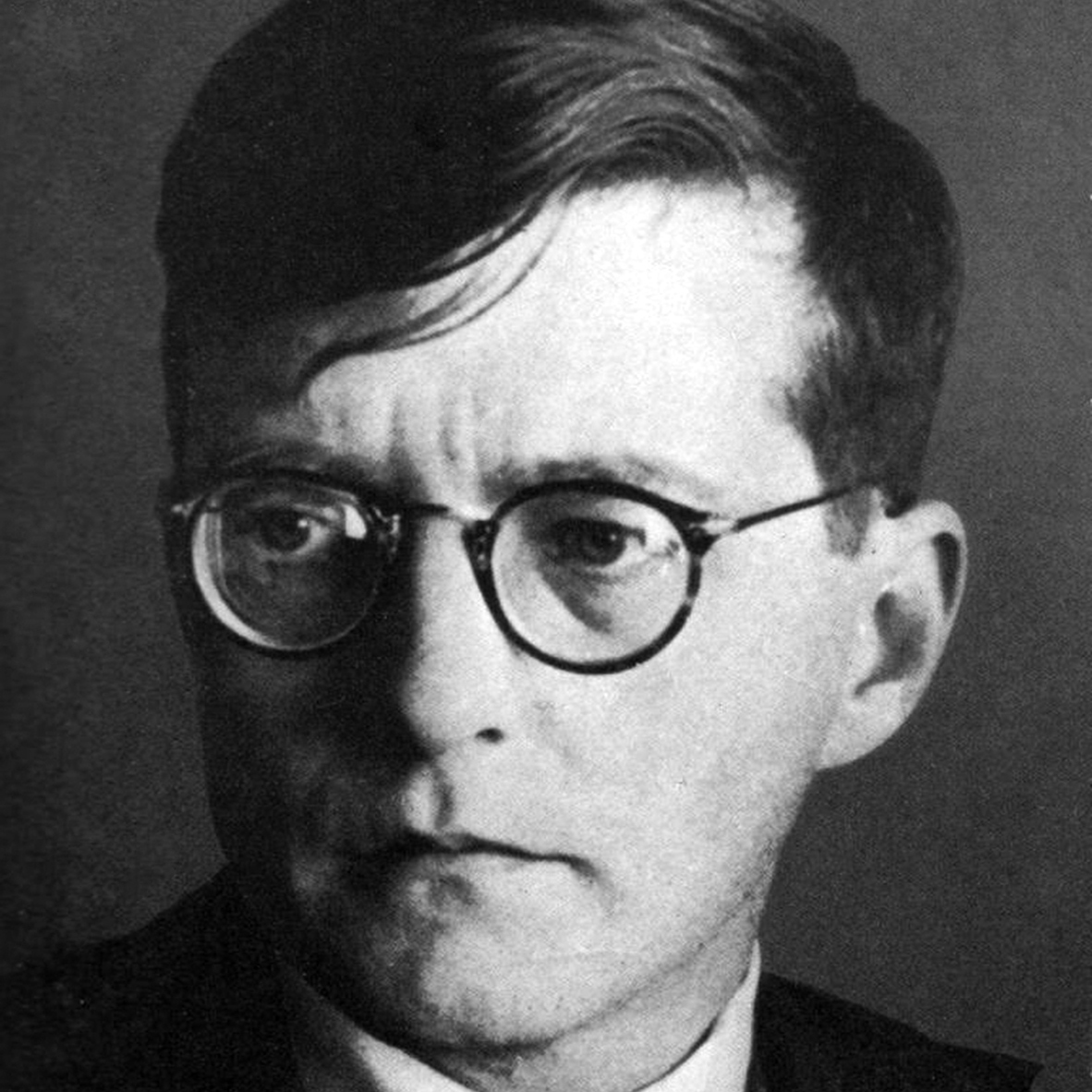
Shostakovich
Born: 1906
Died: 1975
Dmitri Shostakovich
Shostakovich at his best is among the most vital and original of 20th-century composers in music notable for rapid exchange of emotional extremes (very Russian) from the sublime to the banal, sarcastic wit to brooding melancholy. He uses modern compositional techniques but never abandons tonality.
More on Shostakovich
The Shostakovich Question – An isolated figure, working under one of the 20th century's most terrifying dictatorships, his music is emotional, controversial, misunderstood – and a guaranteed hall-filler. David Fanning asks: why are we obsessed with Shostakovich?
The Gramophone Podcast
Exploring Shostakovich
Following his death, the government of the USSR issued the following summary of Shostakovich’s work, drawing attention to a ‘remarkable example of fidelity to the traditions of musical classicism, and above all, to the Russian traditions, finding his inspiration in the reality of Soviet life, reasserting and developing in his creative innovations the art of socialist realism and, in so doing, contributing to universal progressive musical culture’.
It wasn’t always like that, despite his three Orders of Lenin and other Soviet honours, for Shostakovich’s life happened to run in tandem with the Communist regime and he frequently fell foul of the authorities for not writing the right type of music. Nevertheless, while Prokofiev and Stravinsky had grown up under the Tsars, Shostakovich was the first and arguably the greatest composer to emerge from Communism.
His first music lessons (on the piano) came from his mother, a professional pianist, but it was Glazunov who took him under his wing when he entered the St Petersburg Conservatory when he was 13. His graduation composition was his First Symphony, which made him internationally known at the age of 20 and has subsequently proved to be one of his most popular works. His Second Symphony, To October, was less successful despite its rousing choral finale and revolutionary sentiments.
Shostakovich, child of the revolution, believed it was the duty of an artist to serve the state. Yet his next venture, the satirical opera The Nose, was attacked by the arbiters of Soviet musical taste as ‘bourgeois decadence’. The same year, his Third Symphony, subtitled The First of May, its finale saluting the ‘International Workers Day’ was criticised as being no more than ‘a formal gesture of proletarian solidarity’. This was nothing compared to the reaction to his opera The Lady Macbeth of the Mtsensk District (1934). Soviet musicians generally welcomed it as a significant work, as good as anything being produced in the West. But its scenes of adultery, murder and suicide shocked puritan officialdom and, after the opera’s Moscow production, Pravda (the official Communist party newspaper) published an article headed ‘Chaos instead of Music’, accusing Shostakovich of creating ‘a bedlam of noise’, ‘a confused stream of sounds’ and ‘petty bourgeois sensationalism’.
Shostakovich, when he apologised for his errors, said he would try to do better and would henceforth write, even though he thought he had been, music that fell in line with ‘socialist realism’. After his next stage work, the tepid ballet The Limpid Brook, was also condemned by Pravda as being insufficiently dignified on the subject of Soviet life, Shostakovich abandoned the theatre and from 1938 to 1955 wrote chiefly symphonies and string quartets.
His Fourth Symphony fared no better as far as musical officialdom went and it was withdrawn before its first performance. With the Fifth Symphony (1937) Shostakovich was allowed in from the cold, as it were. It’s certainly a magnificent work by anybody’s standards. The miracle is that the Soviet regime agreed, hailing it as ‘a model of true Soviet art’. During the war, he volunteered for active service but was turned down because of his poor eyesight; but in the 1941 siege of Leningrad by the Nazis, Shostakovich served in the fire brigade before flying to the temporary Soviet capital Kuibishev to complete his Seventh Symphony, the Leningrad (the ever-mindful authorities feared for the safety of their valuable Peoples’ Artist). Its theme, the rampant German army being overcome by the victorious Russians, led to performances in every Allied country and its composer became a kind of artistic war hero.
Even this esteem was not enough to save him from being denounced in the famous edict of 1948 when he, Prokofiev and other prominent Russian composers were accused of ‘formalism’ and ‘anti-people art’. He defended himself with some dignity, while accepting the political dogma behind the criticism, but was still dismissed from his professorship at the Moscow Conservatory and wrote only film scores and patriotic music until after Stalin’s death in 1953. Symphonies Nos 9, 10 and 11 created little interest, No 12 (dedicated to the memory of Lenin) a little more, but with his Symphony No 13, Shostakovich again met with official criticism, this time from the Communist Party chairman Nikita Khruschev, who complained that the text of the choral part referring to the massacre of the Jews in Kiev during the war did not pay sufficient attention to the others who were slaughtered. The text was altered to meet the chairman’s objections. Shostakovich’s final two symphonies passed the political quality test without controversy.
His first wife died in 1954 (he remarried two years later). Meanwhile, his son Maxim, born in 1938, was progressing with his musical studies and has since become one of his father’s most distinguished interpreters. In the 1960s restrictions on the arts were slackened somewhat. Shostakovich was left more or less in peace to compose as he wished and many of the works previously condemned by the regime were given a clean bill of health. At the time of his death, The Times wrote of him in its obituary that he was beyond doubt ‘the last great symphonist’.

Gramophone Digital Club
- Digital Edition
- Digital Archive
- Reviews Database
- Events & Offers
From £9.20 / month
Subscribe
Gramophone Club
- Print Edition
- Digital Edition
- Digital Archive
- Reviews Database
- Events & Offers
From £11.45 / month
Subscribe
If you are a library, university or other organisation that would be interested in an institutional subscription to Gramophone please click here for further information.








